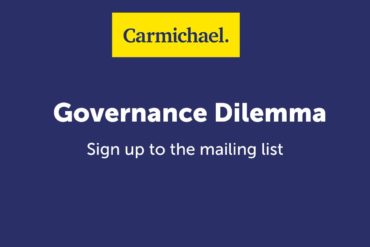Target Audience
Anyone working in Social Enterprise who would like to create positive impacts in their beneficiaries lives.
Outline
Social enterprises play a pivotal role in the delivery of services and supports in Ireland. Beneficiaries can speak first hand of the positive impact these supports have on their lives.
Social enterprises compete with a wide range of other companies and organisations in a bid to generate trading income. The challenge in such instances is to generate financial returns without comprising social outcomes and impact.
This course is designed to put social impact at the heart of business planning and conversations around social enterprise development.
Course Structure
Section 1: External Environment in Context
This section explains how to analyse the external business environment in which a social enterprise operates. To that end several topics are explored:
- Environmental Analysis – PESTEL
- Competitor Analysis
- Market Analysis
- Municipal Authority Plans
- Government Policy
- EU Policy initiatives
- Funder Priorities
Section 2: Internal Analysis
In this section, we explore the factors at play within a social enterprise that influence decisions concerning business strategy and the nature of social impact pursued. The topics we cover here are:
- SWOT Analysis
- Drivers of Change
- Cost Analysis
- Review of Assets
- Assessing Capacity
- Leadership Priorities
- Succession Plans
Section 3: Social Enterprise Strategy
This section considers the options that social enterprises have when setting business direction. Key topics covered include:
- From Activities and Outputs to Outcomes and Impact
- Developing and Using a Theory of Change
- Business Models
- Funding Models
- ESG Impact Investing
- Scaling Opportunities
- Asset Utilisation Strategy
- Selecting a Viable Business Strategy
- Integrating Impact Management and Business Strategy
- Implementing Business Strategy and Achieving Social Impact
Section 4: Marketing
This final section of the course provides an overview of the importance of branding in helping a social enterprise to communicate the value that it delivers. Topics covered include:
- Identifying Brand Values
- Developing a Social Enterprise Brand that Communicates Social Outcomes and Impact
- Developing a Value Proposition Statement
- Developing Effective Market Development Plans
- Maximising Income Generating Opportunities
Upon successfully completing the course, participants may download a course Certificate of Completion.
Note: Once an e-Learning course is booked, it could take up to 48 hours for login details to be provided.
Additional Note: When booking, please make sure to input all the correct contact details onto the booking form as the information will be used to create learner profiles. Should information be entered incorrectly it could delay the booking process.
Learners from outside the Republic of Ireland are advised to contact training@carmichaelireland.ie before booking, in order to ensure proper access to the course.
Carmichael has designed and developed this new eLearning Programme with the needs of social enterprises and growing non-profits in mind. Each module can be purchased individually or can be purchased here as a bundle. This bundle can be accessed for 12 months after purchase.
Social Enterprise Income and Impact Strategy (eLearning)
Social enterprises compete with a wide range of other companies and organisations in a bid to generate trading income. The challenge in such instances is to generate financial returns without comprising social outcomes and impact. This course is designed to put social impact at the heart of business planning and conversations around social enterprise development.
Governance and Charities Governance Code Carmichael (eLearning)
Structured as a practical and instructive 7.5 hours long eLearning course, the Governance and Charities Governance Code course and resource site provides you with a step-by-step approach to implementing appropriate standards of good governance in your non-profit organisation.
Employing Staff and Managing Human Resources (eLearning)
If your non-profit organisation employs staff, then be aware of the issues that can cause problems in the employer/employee relationship. Hire appropriately, manage fairly and motivate effectively if you wish to retain productive employees. All of this should happen within a human resources framework that adheres to all aspects of employment law, data protection and health and safety legislation. This course comes with a large amount of practical resources and templates.
Financial Management for Non-Profits (eLearning)
Every non-profit organisation must manage its finances in a transparent and effective manner. Indeed, funders, donors and beneficiaries, very much depend on board directors and trustees to make best use of all of an organisation’s resources, finance included. In this course, we will take a practical look at the elements of financial management that non-profits must get right.
Business and Organisation Development for Non-Profits (eLearning)
Different demands are placed on an organisation as it develops over time. Managing change, building resources, generating income and maximising impact all take careful planning. In this 4 hour course, we will take a practical look at levels of organisational planning and development of particular relevance to social enterprises and to non-profit organisations who may wish to scale their operations.
Marketing and Sales for Non-Profits (eLearning)
Marketing activity is essential in every non-profit organisation. It helps organisations to reach out to donors to ask for fundraising support. It helps organisations to communicate the good work carried out by staff and volunteers to a wider public, the local community and funders. It helps beneficiaries and service users to identify the non-profit organisations that can best support them.
In this course, we set out the marketing activities of most relevance to non-profit organisations. We pay particular attention to how marketing may be used to help organisations generate trading income and/or implement their organisational purpose i.e. mission.
Note: Once an e-Learning course is booked, it could take up to 48 hours for login details to be provided.
Additional Note: When booking, please make sure to input all the correct contact details onto the booking form as the information will be used to create learner profiles. Should information be entered incorrectly it could delay the booking process.
Learners from outside the Republic of Ireland are advised to contact training@carmichaelireland.ie before booking, in order to ensure proper access to the course.
Course Overview
Marketing activity is essential in every non-profit organisation. It helps organisations to reach out to donors to ask for fundraising support. It helps organisations to communicate the good work carried out by staff and volunteers to a wider public, the local community and funders. It helps beneficiaries and service users to identify the non-profit organisations that can best support them.
In this course, we set out the marketing activities of most relevance to non-profit organisations. We pay particular attention to how marketing may be used to help organisations generate trading income and/or implement their organisational purpose i.e. mission. This course can be accessed for 12 months after purchase.
Target Audience
This course offers a practical insight into marketing and sales planning and is aimed at directors, senior managers and supervisors who do not have a professional background in marketing management.
Outline
Course Structure
The course is divided into 10 component parts and takes approximately 6.5 hours to complete. Participants should allow time to review the practical templates provided throughout the course. Topics are self-contained to facilitate micro-learning for the time conscious participant.
Lesson 1: Purpose
This lesson explains the purpose of marketing and introduces participants to key marketing concepts.
Topic 1: What is Marketing?
Topic 2: Defining the Marketplace
Topic 3: Identifying Competitors and Customer Groups
Lesson 2: Identifying Opportunities
This lesson will be of special interest to any social enterprise or non-profit organisation that wishes to identify opportunities to grow trading income.
Topic 4: Market Segmentation
Topic 5: Identifying Gaps in the Market
Topic 6: Market Research
Topic 7: Generating Business Ideas
Lesson 3: Products, Pricing and Distribution
The lesson explores some of the elements of the Marketing Mix i.e. tactics to help an organisation achieve its marketing objectives.
Topic 8: Product Decisions
Topic 9: Services Decisions
Topic 10: Setting Prices
Topic 11: Distribution Channels
Lesson 4: Promotion
There is a host of promotional tools that can be used by organisations to help them to communicate and engage with their communities, beneficiaries and clients.
Topic 12: Promotional Methods
Topic 13: Focus on Networking
Topic 14: Focus on PR and Event Planning
Lesson 5: Digital Marketing
Another form of promotion, digital marketing, helps organisations large and small to cost effectively share their marketing messages with a much wider audience than would be possible using traditional methods.
Topic 15: Inbound and Outbound Marketing
Topic 16: Online Advertising
Topic 17: Social Media Marketing
Topic 18: Search Engine Optimisation
Lesson 6: Customer Service
Good customer service matters in every organisation! This lesson explores customer service in the context of organisations operating in the Non-Profit Sector.
Topic 19: Customer Service in Context
Topic 20: Principles of Customer Service
Topic 21: Features of Excellent Customer Service
Topic 22: Customer Charter
Topic 23: Handling Customer Complaints
Lesson 7: Sales Management
If you want to grow trading income in an organisation, then you must engage in sales activities at some stage!
Topic 24: The Salesperson
Topic 25: Selling Skills
Topic 26: The Selling Process
Lesson 8: Marketing Plans
This lesson brings together learning gained in previous topics and identifies the information that should appear in marketing plans.
Topic 27: Developing Marketing Plans
Topic 28: Branding
Lesson 9: Website Development
This special purpose lesson focuses on website development and will be helpful to course participants who want to design a website from scratch or refresh their existing online presence.
Topic 29: Content Purpose and SEO
Topic 30: Keywords and Headings
Topic 31: Visual and Audio
Topic 32: Lists and Links
Topic 33: Forms and Messages
Topic 34: Reviewing Content
Topic 35: Creating a Style Guide
Topic 36: Web page Layout and Grids
Topic 37: Keeping Content Up-to-date
Topic 38: Working with Web Developers
Lesson 10: Marketing and Sales Templates
In this final lesson, we provide a fast and easy-to-access list of all the templates covered during lesson topics.
Note: Once an e-Learning course is booked, it could take up to 48 hours for login details to be provided.
Additional Note: When booking, please make sure to input all the correct contact details onto the booking form as the information will be used to create learner profiles. Should information be entered incorrectly it could delay the booking process.
Learners from outside the Republic of Ireland are advised to contact training@carmichaelireland.ie before booking, in order to ensure proper access to the course.
Course Overview
Different demands are placed on an organisation as it develops over time. Managing change, building resources, generating income and maximising impact all take careful planning. In this 4 hour course, we will take a practical look at levels of organisational planning and development of particular relevance to social enterprises and to non-profit organisations who may wish to scale their operations. This course can be accessed for up to 12 months after purchase.
Target Audience
This course is designed with the needs of social enterprises and growing non-profits in mind. It provides a practical hands-on approach to business planning and organisational development for directors, senior managers and supervisors who do not have a background in business management.
Outline
Course Structure
The course is divided into 6 component parts and takes approx. 4 hours to review. Participants should allow time to review the practical templates. Topics are self-contained to facilitate micro-learning for the time conscious participant.
Lesson 1: Levels of Organisational Planning
This lesson explains how to develop strategic plans and operational plans and introduces participants to business planning.
Topic 1: How to develop a Strategic Plan
Topic 2: How to develop an Operational Plan
Topic 3: Business Models versus Business Plans
Lesson 2: Business Model Canvas
This lesson will be of special interest to any social enterprise or non-profit organisation that wishes to pursue a new income generating initiative.
Topic 4: How to use a Business Model Canvas
Topic 5: Key Questions for Non-Profits
Lesson 3: Business Plan
Business plans have been used to guide the development of organisations for well over one hundred years! This lesson looks at the elements of a business plan in depth.
Topic 6: The importance of Business Planning
Topic 7: Key Sections of a Business Plan
Topic 8: Situational Analysis
Topic 9: Market Analysis
Topic 10: Operations Management
Topic 11: Financial Projections
Topic 12: Monitoring Results
Topic 13: Resourcing the Plan
Lesson 4: Operational Planning
As organisations seek to scale resources acquisition and social impact, additional issues must be considered if the quality of service delivery is not to be compromised.
Topic 14: Capacity Utilisation
Topic 15: Scaling Non-Profit Organisations
Topic 16: Managing Cost Drivers
Topic 17: Managing Productivity
Lesson 5: Managing Change
Every organisation will face managing change at some stage in its development. Failure to do so successfully, can greatly undermine the aspirations and potential social impact of a non-profit.
Topic 18: The Nature of Change
Topic 19: Organisation Culture
Topic 20: Change Interventions
Topic 21: Change Management Integration Plan
Lesson 6: Business Development Quick Links
In this final lesson, we provide a fast and easy-to-access list of all the templates covered during lesson topics. Upon completion of the course, the lesson page can be accessed time and again thereafter.
Note: Once an e-Learning course is booked, it could take up to 48 hours for login details to be provided.
Additional Note: When booking, please make sure to input all the correct contact details onto the booking form as the information will be used to create learner profiles. Should information be entered incorrectly it could delay the booking process.
Learners from outside the Republic of Ireland are advised to contact training@carmichaelireland.ie before booking, in order to ensure proper access to the course.
Course Overview
Every non-profit organisation must manage its finances in a transparent and effective manner. Indeed, funders, donors and beneficiaries, very much depend on board directors and trustees to make best use of all of an organisation’s resources, finance included. In this course, we will take a practical look at the elements of financial management that non-profits must get right. This course can be accessed for 12 months after purchase.
Target Audience
This course is designed with the needs of social enterprises and growing non-profits in mind. It provides a practical hands-on approach to financial management for directors, senior managers and supervisors who do not have a background in accounting or finance.
Course Structure
The course is divided into 6 component parts and takes approx. 3 hours to review. Participants should allow for additional time to review the practical templates and suggested reading material which accompany the course. Topics are self-contained to facilitate micro-learning for the time conscious participant.
Lesson 1: Introduction to Financial Management
This lesson provides an overview of the elements of financial management and provides a helpful glossary of terms typically used in accounting and business language.
Topic 1: The Language of Finance
Topic 2: Four Elements of Effective Financial Management
Topic 3: Working with an Accountant
Lesson 2: Planning and Budgeting
Planning and budgeting are one of the cornerstone elements of financial management. Aside from ensuring that a workable and resourced plan of action is in place, non-profit boards and managers must also consider the risks associated with their organisations, the level of reserves to hold and sources of funding.
Topic 4: The Role of Planning
Topic 5: Cash Flow and Sustainability
Topic 6: Sources of Funding
Topic 7: The Role of Reserves
Topic 8: Risk Management
Lesson 3: Financial Bookkeeping
The element most commonly associated with financial management, financial bookkeeping requires organisations to keep proper books of account so that a true picture of assets, liabilities, income, expenditure and cash flow can be ascertained at all times.
Topic 9: Bookkeeping Fundamentals
Topic 10: Record Keeping
Topic 11: Costing Products and Services
Lesson 4: Financial Controls
Transparency and accountability are essential in any non-profit organisation. Hence, a number of financial controls are required to manage the finance function in an effective manner.
Topic 12: Setting Financial Controls
Topic 13: Procurement
Lesson 5: Financial Reporting
The fourth element of financial management focuses on financial reporting. Every non-profit organisation produces financial reports of varying levels of detail and complexity.
Topic 14: Financial Reporting – Technical Requirements
Topic 15: Interpreting Financial Statements
Topic 16: Data for Board Decision-making
Lesson 6: Financial Management Quick Links
In this final lesson, we provide a fast and easy-to-access list of all the templates and practical resources covered during lesson topics. Upon completion of the course, the lesson page can be accessed time and again to access and download practical ready to use forms and policy documents.
Note: Once an e-Learning course is booked, it could take up to 48 hours for login details to be provided.
Additional Note: When booking, please make sure to input all the correct contact details onto the booking form as the information will be used to create learner profiles. Should information be entered incorrectly it could delay the booking process.
Learners from outside the Republic of Ireland are advised to contact training@carmichaelireland.ie before booking, in order to ensure proper access to the course.
Target Audience
This course is designed with the needs of social enterprises and growing non-profits in mind. It provides a practical hands-on approach to human resource management for directors, senior managers and supervisors who do not have a background in human resources management.
Course Overview
If your non-profit organisation employs staff, then be aware of the issues that can cause problems in the employer/employee relationship. Hire appropriately, manage fairly and motivate effectively if you wish to retain productive employees. All of this should happen within a human resources framework that adheres to all aspects of employment law, data protection and health and safety legislation. This course comes with a large amount of practical resources and templates which can be accessed for 12 months after purchase.
Outline
Course Structure
The course is divided into 7 component parts and takes approx. 6 hours to complete. Topics are self-contained to facilitate micro-learning for the time conscious participant
Lesson 1: Employing staff – Adhering to Legal Obligations
This lesson focuses on some of the practical considerations that must be addressed to ensure that an organisation complies with its obligations under Irish employment legislation. Three core topics are covered in this lesson.
Topic 1: Employment Law
Topic 2: Health and Safety
Topic 3: Data Protection
Lesson 2: Working with Suppliers
Most non-profits need to work with suppliers and contractors to get their products and services to market, or to help them to meet their reporting obligations. This course addresses the subject from the perspective of how to source suppliers and manage relationships.
Topic 4: Sourcing Suppliers and Contractors
Topic 5: Managing Supplier and Agency Relationships
Lesson 3: Recruiting Employees
The employee recruitment process is explored in lesson 3 and introduces participants to the many factors that impact the sourcing and recruiting of competent and motivated employees. Seven core topics comprise the lesson.
Topic 6: Human resources planning: staffing levels and business objectives
Topic 7: Setting terms and conditions of employment
Topic 8: Creating Job profiles
Topic 9: Sourcing employees
Topic 10: Screening and interviewing potential employees
Topic 11: Selection and reference checks
Topic 12: Staff induction and initial training
Topic 13: Community Employment Schemes
Topic 14: Hosting Work Placements
Lesson 4: Maintaining Employment Records
General data protection regulation aside, a non-profit is legally obliged to retain certain employment records for the people employed in the organisation. The lesson explores this important requirement from the perspective of setting up and retaining employment records.
Topic 15: Setting up staff files
Topic 16: Retaining employment records
Lesson 5: Managing and Motivating Employees
Managing and motivating employees is at the heart of human resource management. There are a multitude of factors that can affect staff motivation as reflected in the eight core topics that comprise the course.
Topic 17: Theories of motivation
Topic 18: Managing teams
Topic 19: Reward System
Topic 20: Setting performance standards
Topic 21: Managing performance
Topic 22: Recognising good performance
Topic 23: Handling grievances
Topic 24: Identifying staff training and development needs
Lesson 6: Developing Employment Policies
A social enterprise or non-profit demonstrates its commitment to adhering to employment legislation through the range of policies it adopts. Policies relating to the management of employees are typically contained in an employee or company handbook.
Topic 25: Identifying policy requirements
Topic 26: Setting internal controls
Topic 27: Developing an employee handbook
Lesson 7: Human Resources Templates
In this final lesson, we provide a fast and easy-to-access list of all the templates and practical resources covered during lesson topics. Upon completion of the course, the lesson page can be accessed time and again to access and download practical ready to use forms and policy documents.
Note: Once an e-Learning course is booked, it could take up to 48 hours for login details to be provided.
Additional Note: When booking, please make sure to input all the correct contact details onto the booking form as the information will be used to create learner profiles. Should information be entered incorrectly it could delay the booking process.
Learners from outside the Republic of Ireland are advised to contact training@carmichaelireland.ie before booking, in order to ensure proper access to the course.




